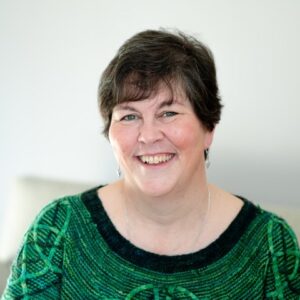 This week’s blog comes from Alison McGrath, a nurse now working as an independent wellbeing coach, and explores whether nurses may be at risk of chronic exhaustion.
This week’s blog comes from Alison McGrath, a nurse now working as an independent wellbeing coach, and explores whether nurses may be at risk of chronic exhaustion.
Why do nurses smoke? Because the doctors have eaten all the chocolate.
So went the joke when I was a student nurse in the early 1990s. We all laughed wryly at the unspoken reality underpinning the joke: a job that drove us to smoke or comfort-eat just to get through a shift. The NHS, as always, was in crisis. Headlines screamed that nurses were losing their vocation and quitting in huge numbers. I became one of those ‘quitters’ when I burned out in 1999.
I went on to study for a PhD, exploring what experiences lay behind those judgemental headlines: Why did nurses want to leave? But, my academic career ended, in part, because I was told that nursing research is about patients, not nurses. I descended into years of escalating symptoms, eventually diagnosed as fibromyalgia, leaving me bed-bound for months and feeling as if my life had ended. My doctors told me that I should adapt to my exhaustion since recovery is not possible. Fortunately, as a nurse, I am not a good patient who accepts medical advice without question. I kept looking for answers, advice and support and I am now a fully recovered wellbeing coach, supporting recovery from chronic exhaustion. So many of my clients are nurses that I ask, ‘Why are nurses at particular risk of developing chronic exhaustion – CFS, ME, fibromyalgia, long Covid?’
Why do nurses smoke? Why do they leave? Why are they exhausted? Aren’t the answers obvious? Nursing is a tough profession, and we need to be strong, dedicated superheroes to do it. Really? I believe that the nursing workforce deserves more than this superficial response. From the few statistics recording nursing leavers and illness, it is impossible to say that nurses are at particular risk of chronic exhaustion. The lack of interest in compiling meaningful workforce statistics continues, and the choices made during the pandemic, to stop collating long Covid statistics, points to the politically explosive consequences of collecting this evidence. However, the patterns I see in my work cry out for attention: a notably high proportion of nurses, and a strong profile seen across clients, which resonates strongly with the nursing profile.
The ME profile, developed by the online recovery programme that I work with, is one that nurses might like to reflect on, to consider how it applies to themselves, and whether they need to take action to avoid a descent into the chronic exhaustion and incapacity that I experienced.
People who develop chronic exhaustive conditions are:
Driven
- Hard-working, perfectionists, often in the service of others;
- Over-givers who feel that nothing they do is ever enough.
- Resting and self-care are only acceptable when everything is finished and everyone else is OK, except, they never seem to reach that point. They may struggle to even know what they need or want.
Highly Sensitive
- From childhood they experience discomfort with loud noise, smells, crowds etc
- In adulthood there is an increasing sensitivity to foods, chemicals, medicines.
- They are empaths, deeply attuned to other people’s emotions, often absorbing those feelings into themselves and taking them home.
Live in their head
- They ruminate about the past, are anxious about the future, and are constantly problem solving and fixing.
- They are disconnected from their emotions and body in the present, often resulting in chronic pain and clumsiness.
A square peg in a round hole
- There is often a lifelong feeling of never fitting in or being enough.
- This is often accompanied by experiences of bullying by siblings and/or at school/work.
A high ACE score
- A history of Adverse Childhood Experiences (ACES)[1]
- Additional small-t traumas that often include being a parentified child. I.e., taking on adult responsibilities, developing an identity as a strong carer at a very young age.
Does any of this sound familiar to you?
Nurses don’t just develop chronic exhaustive conditions because they have a demanding job. We choose nursing because we are the sort of people who are already at risk, having learned to prioritise others needs over our own. We enter a profession that amplifies those tough, self-sacrificial expectations, while making inhuman demands and rendering trauma a normalised experience.
Yes, we need to demand reform of the NHS and greater support for nurses, but don’t we also need to start a conversation about the binary world view that artificially divides us into strong carers and vulnerable patients?
What can I do to lower my risk?
If the ME profile feels familiar, and especially if you are already chronically exhausted, it is important to take action now. Your health matters as much as that of your patients, colleagues and family. Your first step is to click below to explore an Early Warning Signs checklist for chronic exhaustion. These are the signs that our bodies give as warnings that we are being overwhelmed physically and emotionally. It is important to recognise and listen to those signs, to begin addressing your own needs before your body steps in, as mine did, to say ‘No more!’
Link to Early Warning Signs Checklist https://www.campsiecoaching.com/Signs-and-Symptoms/
For information on ACEs and their role in chronic illness read Gabor Maté’s book, When the Body Says No,
Alison McGrath, BSc (Hons) Nursing, MSc by Research, PhD, MFHT, is an ILM Accredited, Trauma Informed Wellbeing Coach and Specialist Recovery Practitioner working with The Chrysalis Effect online recovery programme.
Email alison@campsiecoaching.com
Alison’s Website www.campsiecoaching.com
Facebook id https://www.facebook.com/profile.php?id=100089564316586
The Chrysalis Effect website www.thechrysaliseffect.co.uk
[1] For information on ACEs and the ACE questionnaire: https://mft.nhs.uk/rmch/services/camhs/young-people/adverse-childhood-experiences-aces-and-attachment/